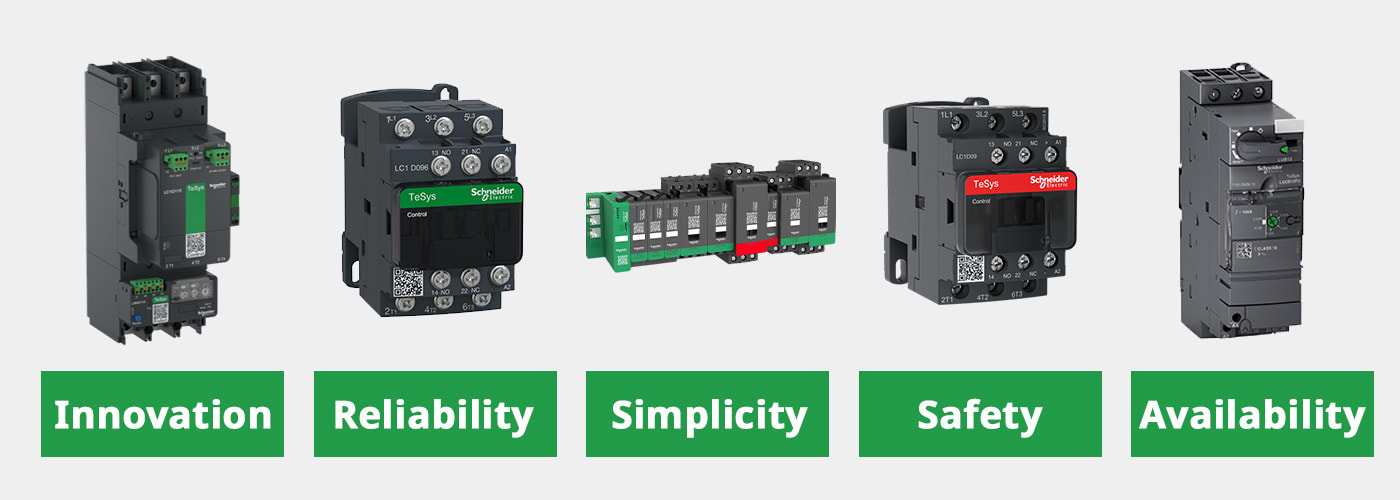The benefits customers are looking for
With the right combination of new motor control technologies, OEMs, panel builders, system integrators and end users can achieve significant business benefits, including:
Reduced carbon emissions: Electrifying and digitizing motor operations can reduce energy consumption by up to 30%, dramatically decreasing carbon emissions in energy-intensive industries.
High efficiency: New high-efficiency components like contactors and variable frequency drives (VFDs) help boost overall electrical system efficiency.
Increased power availability: Digitizing motor controls enables remote monitoring of power load and power quality data, facilitating diagnostics and fixes, allowing predictive maintenance, and improving production continuity.
Enhanced safety: Motor-related applications can include both operator and device safety components such as motor start and stop controls, safety controllers, and safety interlock switches.
Better price performance: Optimized motor management can deliver a 20% return on investment, 30% reduction in solution costs, and four-times faster recovery time after a motor stop.^2 ^Smart motor systems can prolong motor lifetimes, as well.
2 Based on Schneider Electric internal field studies








